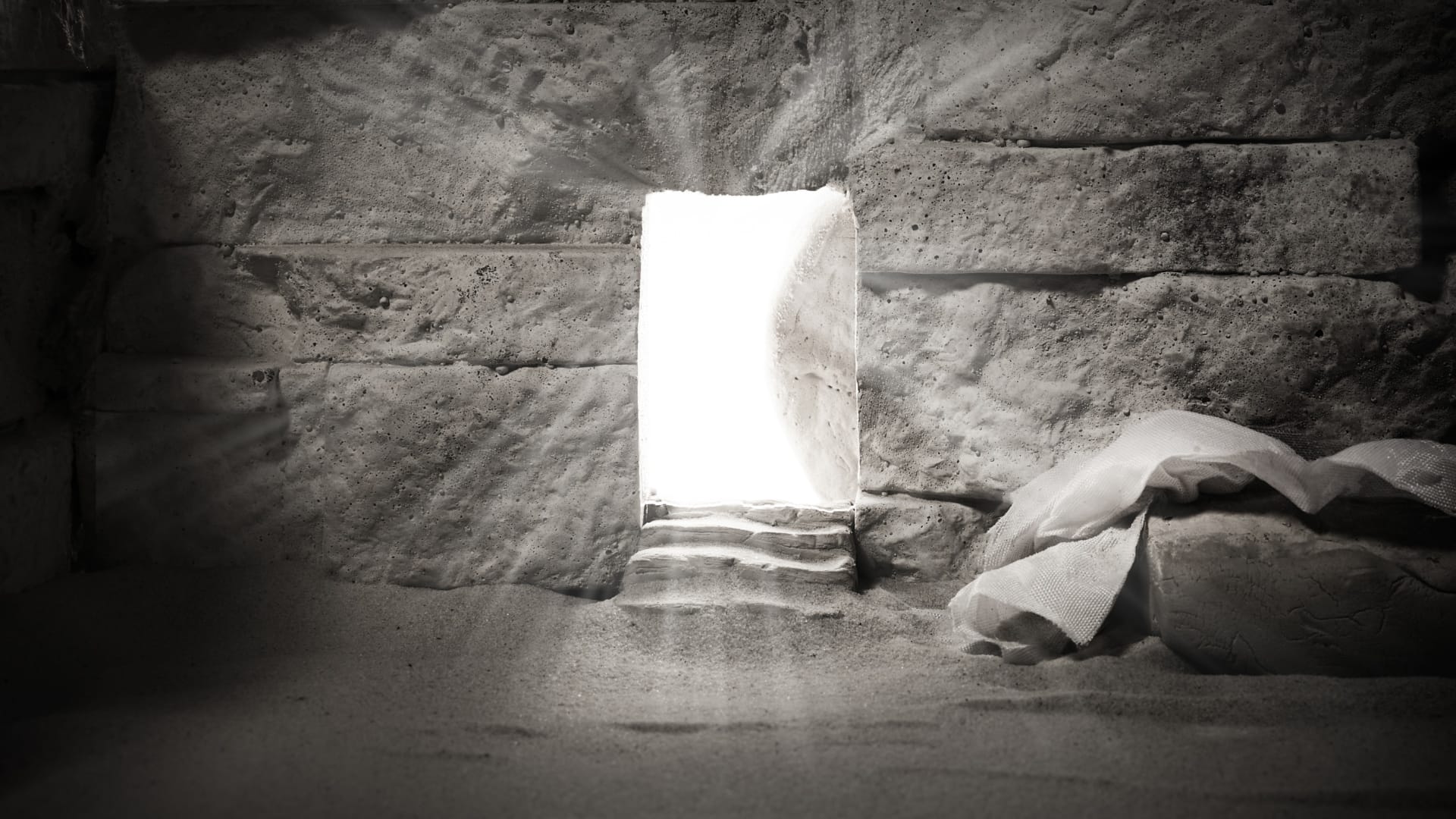The Good Life (Psalm 128)

Big Idea: The good life is found in fearing and obeying God, and living this way leads to flourishing for both ourselves and others.
Every Sunday morning, I watch the cross-Canada train go by my window. 4,466 kilometers. 4 nights and 4 days. Scenic views through the Rocky Mountains. I’ve always wanted to take that trip. I’m pretty sure I would enjoy it.
I have a list of things I’d love to do: trips I’d like to take, things I’d like to do. I want the good life, and so do you.
We’re not alone. For thousands of years we’ve wanted to figure out how to live the good life. We want happiness. We want fulfillment. We want the good life. And today’s passage is going to help us.
We’re in the Psalms called the Songs of Ascent. They’re pilgrim songs, probably sung by pilgrims as they made their way to Jerusalem for one of the three annual feasts. And this song is different. It speaks about how to live the good life.
How do we find happiness? This psalm tells us.
Psalm 128:1 says:
Blessed is everyone who fears the LORD,
who walks in his ways!
(Psalm 128:1)
That sounds like just the thing that you’d expect to hear in church. “Really? If I fear the LORD, will I really be blessed? And all will go well with me? If I fear the LORD, will I really have a wife who’s like a fruitful vine, and my children be like olive shoots?”
David Platt, a preacher and writer, says:
I think if I were to rewrite Psalm 128, which I’m not in any way assuming to have authority to rewrite Scripture, but if it were in my hands to write Psalm 128 … it might sound a little more like this…
“You will eat the food you can pick up as quickly as possible from a take-out restaurant. Nausea and heartburn will be yours. Your wife will be like a tired, weary, and stressed out vine running around the house; your sons will be like olive shoots around your table. No, wait, actually, the only thing shooting around your table will be your oldest son’s food flying from his hand across the table and your youngest son’s food as he sneezes sweet potatoes out of his nose and mouth directly into your face while your mouth is open. Thus is the man blessed who fears the Lord.” That’s how I would kind of rewrite it if it were up to me.
How do you make sense of a passage like this? It seems a little idyllic and unrealistic.
Actually, this psalm has an important message for us. Here are three lessons we learn about how to live the good life.
First: The good life is found in fearing and obeying God.
Trevin Wax has written a really helpful book called Rethink Your Self. He says that there are a couple of major ways that we try to find the good life these days. See if you recognize them:
- Look within. “If you want to discover who you are and what your purpose is, the place to look is inside your heart. You look inside for the answers. Trust your heart. Go with your gut. No one else gets to define you.” Although we enjoy some benefits from this approach, there’s also some pretty huge downsides. It’s so individualistic. It puts so much pressure on us. And, in the end, when we look inside, we discover some pretty sobering truths about who we are. It’s not all good news. That’s the look within approach to finding the good life. It’s very popular, but ultimately it doesn’t work.
- Look around. We sometimes also try the “look around” approach. This is less common in our own culture, but still exists in less individualistic cultures, where we look to others to find our place within the community.
How do we find the good life? Those are the two most common approaches. They’re assumed as common sense by most people. Wax writes, “For many in our society, you look in first in order to define who you are by discovering your deepest desires, then around at people who will support and affirm your choices in life, and then up to a higher power that adds a spiritual dimension to your journey.” But these approaches can’t bear the weight of our happiness.
But Psalm 128 tells us there’s a better way to live the good life: look up.
Verse 1 says:
Blessed is everyone who fears the LORD,
who walks in his ways!
(Psalm 128:1)
The idea the psalmist is pointing us to the good life, characterized by two qualities:
- An attitude of fear and reverence toward God, a foundational trust toward him.
- Also, obedience; actions that line up with his purposes.
I love how Dane Ortlund describes the fear of the Lord:
To fear the Lord means to live as if God exists and is who he says he is. It is to walk through life bowing to his kingship and remembering his gracious redemption. To fear the Lord means to yield to his will and seek to walk in his ways as our gracious deliverer.
Do you want to live the good life? The good life is found in fearing God and obeying him. This approach looks up, around, and then in.
As Trevin Wax writes:
The “look up” approach to life starts with self-demotion. You’re not at the center of the universe. The Bible holds that space for God.
To sum up, the beginning of the Bible starts with looking up before looking around or in. It starts with God. He’s the point, not us. That means, ultimately, you’re not self-creating; you’re God-created. You’re not self-defining; you’re God-defined.
According to Psalm 128, this is how we find the good life. Stop looking in or around. Look up. The good life is found in fearing and obeying God.
Let me ask you an important question. When it comes to your own good, who do you think knows better, you or God? Who would you trust with your happiness? When you encounter something that you don’t like in God’s Word, is your first thought that you need to conform your thinking to the Bible, or conform the Bible to match your thinking? Basically, who knows best: you or God?
How you answer these questions will determine everything about you. These are some of the most important questions you will ever answer in your life. How you answer will determine how you live and how you will die.
You cannot live the good life if you do not submit yourself to God. The place to start for all of us is to orient our lives around him, to lay down our agendas. The good life is found in fearing and obeying God. That’s the first thing we learn in this psalm.
Here’s the second:
Living this way leads to flourishing.
Looking in and looking around promise a lot, but those approaches don’t really lead to our happiness. But looking up leads to a condition you could call blessing or flourishing. Look again at verse 1:
Blessed is everyone who fears the LORD,
who walks in his ways!
(Psalm 128:1)
Let’s back up a little. What does blessed mean? It appears four times in this passage, so we’d better try to understand it.
The word is really the intersection of two ideas. If you picture a Venn diagram, it’s where the two overlap:
- first, it’s the idea of happiness and contentment
- second, it’s the idea of being favored by God
“In the Bible, being blessed is being truly happy because you are living in a state that God declares to be the best way to live’ (Josh Moody).
What is the blessed life, then? It’s the overlap, the dovetailing, of happiness and divine favor. We tend to hold these things apart, but the psalmist says that this is what we will experience when we fear and obey God.
What does this blessedness look like? It has to do with the everyday details of life: your work, food, house, and family. These blessings mirror the covenant blessings of Deuteronomy 28:
And all these blessings shall come upon you and overtake you, if you obey the voice of the LORD your God. Blessed shall you be in the city, and blessed shall you be in the field. Blessed shall be the fruit of your womb and the fruit of your ground and the fruit of your cattle, the increase of your herds and the young of your flock. Blessed shall be your basket and your kneading bowl. Blessed shall you be when you come in, and blessed shall you be when you go out. (Deuteronomy 28:2-6)
These promises were to Israel if they obeyed. God made the point that their prosperity depended on their faithfulness to him. God also gave a set of covenant curses in Deuteronomy 28 describing what life would be like if they didn’t obey him. These were treaty stipulations, outlining how God would treat Israel. So there’s some continuity. These promises don’t directly apply to us. Even in Israel’s case, the people who sang this song knew experienced their share of suffering. The very next Psalm begins, “Greatly have they afflicted me from my youth…” (Psalm 129:1). We live in a broken world. This psalm is not a promise that if you obey God you will live a problem-free life. That is not what we can expect.
But we can expect blessedness in the middle of the difficultly of live. In the Sermon on the Mount, Jesus described the blessed life. Jesus said, “Blessed are the poor in spirit, for theirs is the kingdom of heaven. Blessed are those who mourn, for they shall be comforted. Blessed are the meek, for they shall inherit the earth,” and so on (Matthew 5:3-5). Jesus says that it’s actually the weak, sad, and overlooked who are blessed. Jesus is saying that blessedness — happiness and divine favor — are available to anyone, even if your life is hard. That is very good news.
I have found that this is true: that some of the most blessed people I know aren’t those who have it all but who fear the Lord. It’s not about your appearance or circumstances. It goes much deeper. But it’s real.
The way to get happiness is not to pursue happiness. They way to get happiness is to pursue God. Real happiness doesn’t come from your stuff. It comes from living in alignment with God, of knowing how much God gives his children who have come to Jesus. Randy Alcorn said, “Though I live in a world that sells false happiness at newsstands, websites, and big-box stores, I thank God for authentic happiness in Jesus.” If you live this way, you will become yourself, “enjoying God in alignment with the way he created us to be as creatures on this globe” (Dane Ortlund).
That’s what this psalm teaches us. The good life is found in fearing and obeying God, and living this way leads to flourishing. But here’s the final thing we learn:
When we live this way, the people around us will benefit.
We like to think that we’re self-contained creatures, but verse 3 shows us the kind of impact we can have on others when we live this way:
Your wife will be like a fruitful vine
within your house;
your children will be like olive shoots
around your table.
(Psalm 128:3)
I’ll be quick here, because we’re almost out of time. Your life will positively or negatively influence others. When you run after God with all of your heart, not only will you be blessed, but you will have a positive impact on the people around you. Generally speaking, you will experience the overflow of that pursuit in your relationships with others. As my friend Chris Brauns writes, “our lives, choices, and actions are linked to the lives, choices, and actions of other people. To put it simply … we are ‘bound together,’ tied to others in our good and bad choices.”
You could call this the umbrella principle: “One man holds the umbrella faithfully, and, by God’s grace, countless others are protected under the cover it provides” (Gospel Transformation Bible).
This psalm raises our vision. The good life isn’t about our individual lives. Our goal should be to become a source of positive influence for all those around us, one that we pray will last multiple generations.
Here’s what this psalm teaches us, and what I’ve seen over and over again as I’ve watched people around me: The good life is found in fearing and obeying God, and living this way leads to flourishing for both ourselves and others. That is the good life.
We want the good life. Psalm 128 tells us how to find it: to fear and obey God. Not only will we become happy in God, but we’ll be come a source of blessing for others too.
In a world that points us to happiness on our own terms, this is the path to true happiness, and it begins with bowing before Jesus and receiving his gift of grace that’s available for all of us. Turn to Jesus. Trust him. Fear him. Obey him. You will experience blessing, and you will be a blessing to others.
I picture the pilgrims hearing the blessing of verses 5 and 6 from a priest as they arrived in Jerusalem. I’m not a priest, and we’re not in Jerusalem, but let me say them over you:
The LORD bless you from Zion!
May you see the prosperity of Jerusalem
all the days of your life!
May you see your children’s children!
Peace be upon Israel!
(Psalm 128:5-6)






